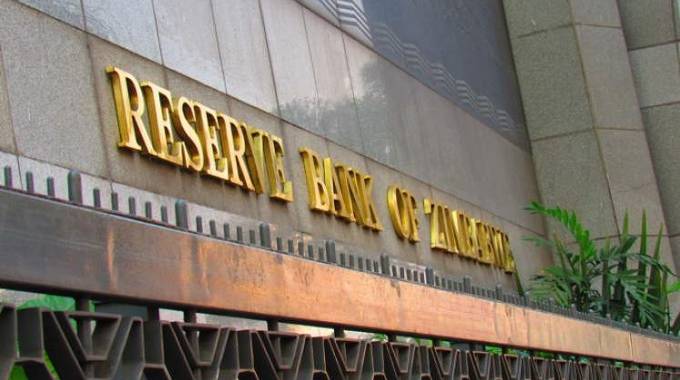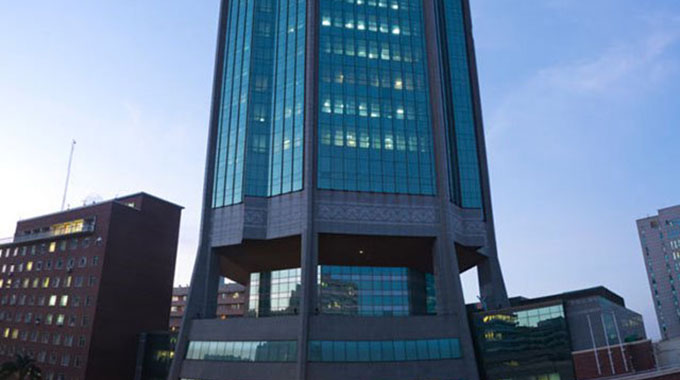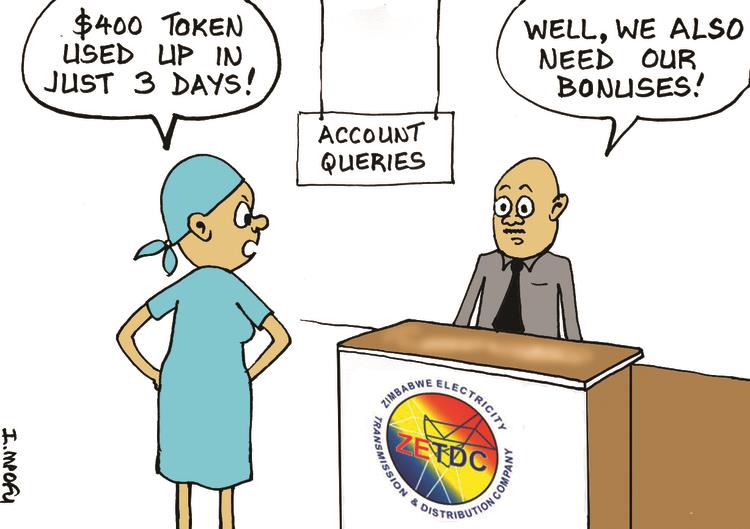EDITORIAL COMMENT : RBZ must be a step ahead of cash barons

Cash barons and market manipulators will be upset over the introduction of the new $5 notes and $2 coins within two weeks: most other people think the measure by the Reserve Bank of Zimbabwe (RBZ) is overdue, but further steps might be needed to solve the cash baron nuisance.
While Zimbabweans have become, willy-nilly, the world’s leaders in using digital and mobile money, we still have our old-fashioned hold-outs, specifically kombi conductors, most vendors, a swathe of the informal sector, drug dealers and tax dodgers.
These all want notes and coins. So now more will be issued, although steps have been taken to ensure that the increased percentage of the money supply being cash will not raise the total money supply, so no one is printing money to pay bills.
If everyone behaves responsibly and legally this move by the RBZ, after taking advice from the Monetary Policy Committee, will wipe out the cash barons who have been charging premiums of up to 60 percent for those wanting to move from digital money to notes and coins.
It will also make a mockery of those who have two sets of Zimbabwe dollar prices, one if you pay cash and a premium if you use mobile or digital money.
But we should not expect total responsibility from everyone, and even legality, especially when it involves currency fiddles and tax evasion, is not universally respected.
There are going to be some who will be seeking new angles and new ways to create and corner markets.
Banknotes and coins should not be a commodity that people buy and sell, but regrettably they have become so.
The danger is that as the new notes and coins trickle into circulation those who already hoard and deal in cash will simply expand their operations. We already see queues of people sleeping overnight outside banks. Most are not there to get a few dollars for bus fare.
They are there because this is how they earn their living, queuing to get a handful of notes that they can then sell to their local cash baron, the profit being what they live on. They are not to blame; that is for those who hire them.
But what we are likely to see as the new notes and coins become available is the same people queuing overnight, perhaps joined by friends, to corner the daily allocation.
So premiums might have to inch down, but the essential problem will remain.
Few working people can, or wish to, sleep on the pavement outside a bank in order to collect a week’s bus fares for their families. They will still be forced to buy this weird commodity.
One extreme solution the RBZ and the Ministry of Finance and Economic Development might like to think about over the next fortnight is wiping out the cash barons financially. The way to do this would be to demonetise the $5 and $2 bond notes.
This would involve giving everyone a modest time, a fortnight perhaps, to swop their notes, but there would be a limit for no-question swops, something like $100 or $200. Anyone wanting to swop over that low limit would have to produce tax clearances and explain why they had a trunk full of notes.
They would have to apply to swop, and recognise that unless they had a good reason, permission would not be granted.
This would obviously hit cash hoarders, tax cheats and those who buy and sell cash, but it would not affect the ordinary person who struggles to find the $10 to $20 they need to get to and from work each day.
They would just swop for coins and carry on.
India did this, with a lot of noisy objections from losers, but it worked.
The tax cheats, who adore dealing with untraceable cash, mbanje sellers and others who wish their business transactions to escape the attention of the authorities will still be very cross that the highest denomination remains $5, not a large sum.
Here the RBZ and its advisors have shown some shrewdness. It is difficult to perform many of these more dubious transactions in cash when you have to lug suitcases of the stuff around, and in any cash criminals pray on each other so advertising that you have large amounts of untraceable cash is simply inviting trouble.
Obviously the RBZ wants cash to be kept just for the little transactions, the ones requiring one or two notes, not for the larger sums where prudence should in any case see buyers wanting to use their phone, swipe card or internet banking.
There is no need for major cash transactions.
There has been a huge cultural shift in Zimbabwe from cash to mobile and digital money in the last few years. Even the elderly and the residents of the more remote rural areas now walk into shops clutching a phone.
Most pensions are now paid by mobile money, so no one back in their ancestral area has to burn most of the pension on bus fares to collect the thing in the first place.
And working younger people find mobile money a convenient way of sending their granny a few dollars.
So rural grandmothers are now fairly expert when it comes to cashing their cash in a phone. And if they can do it so can everyone else.









Comments